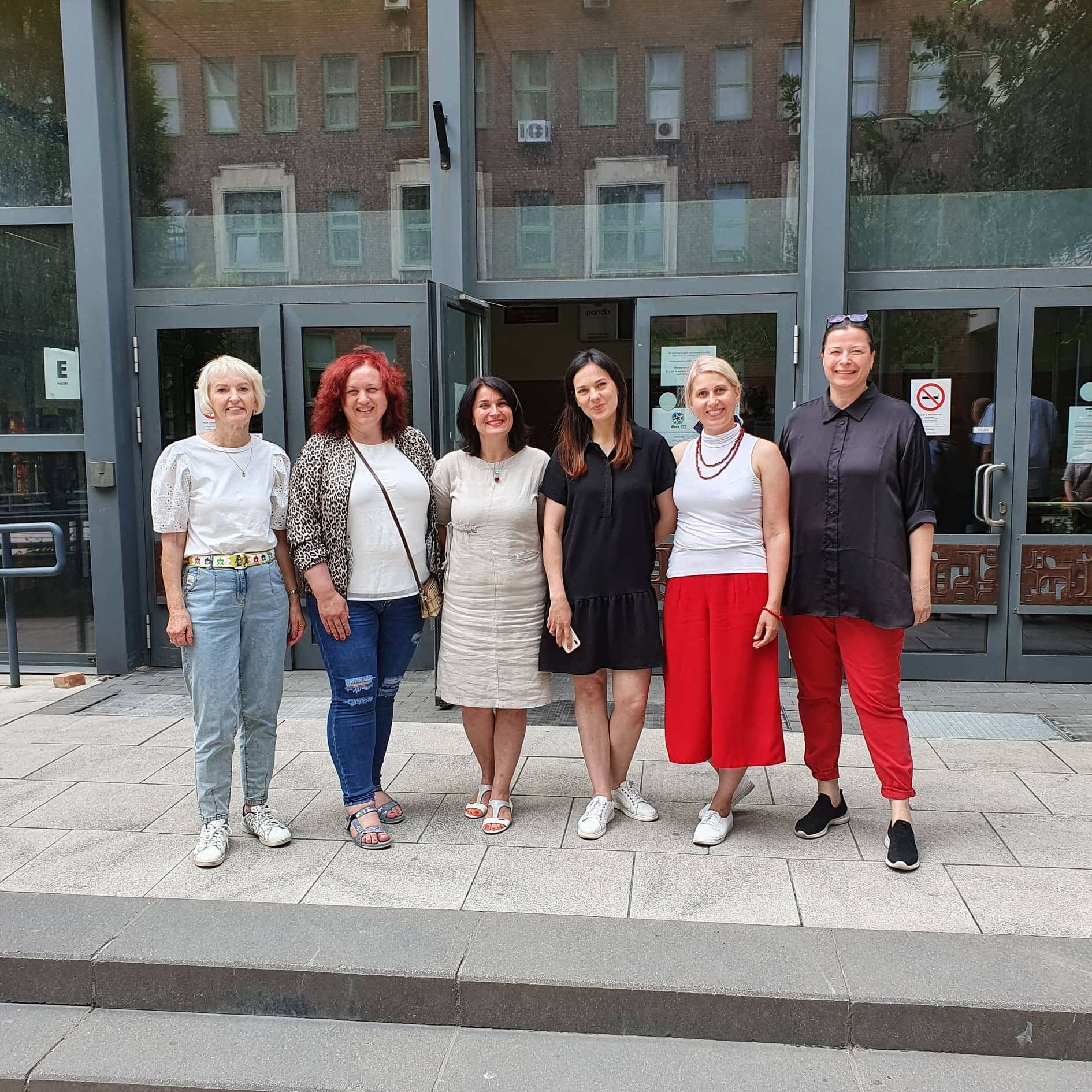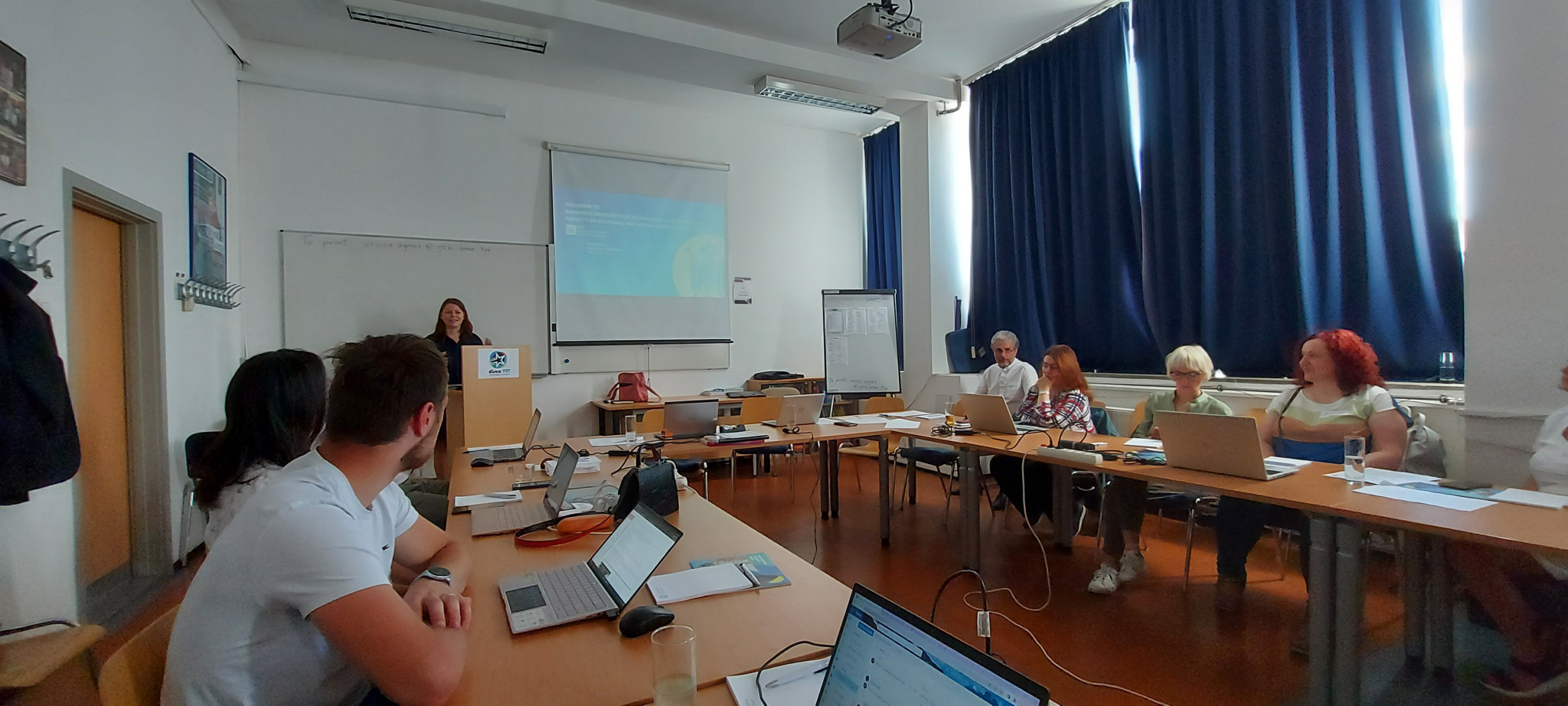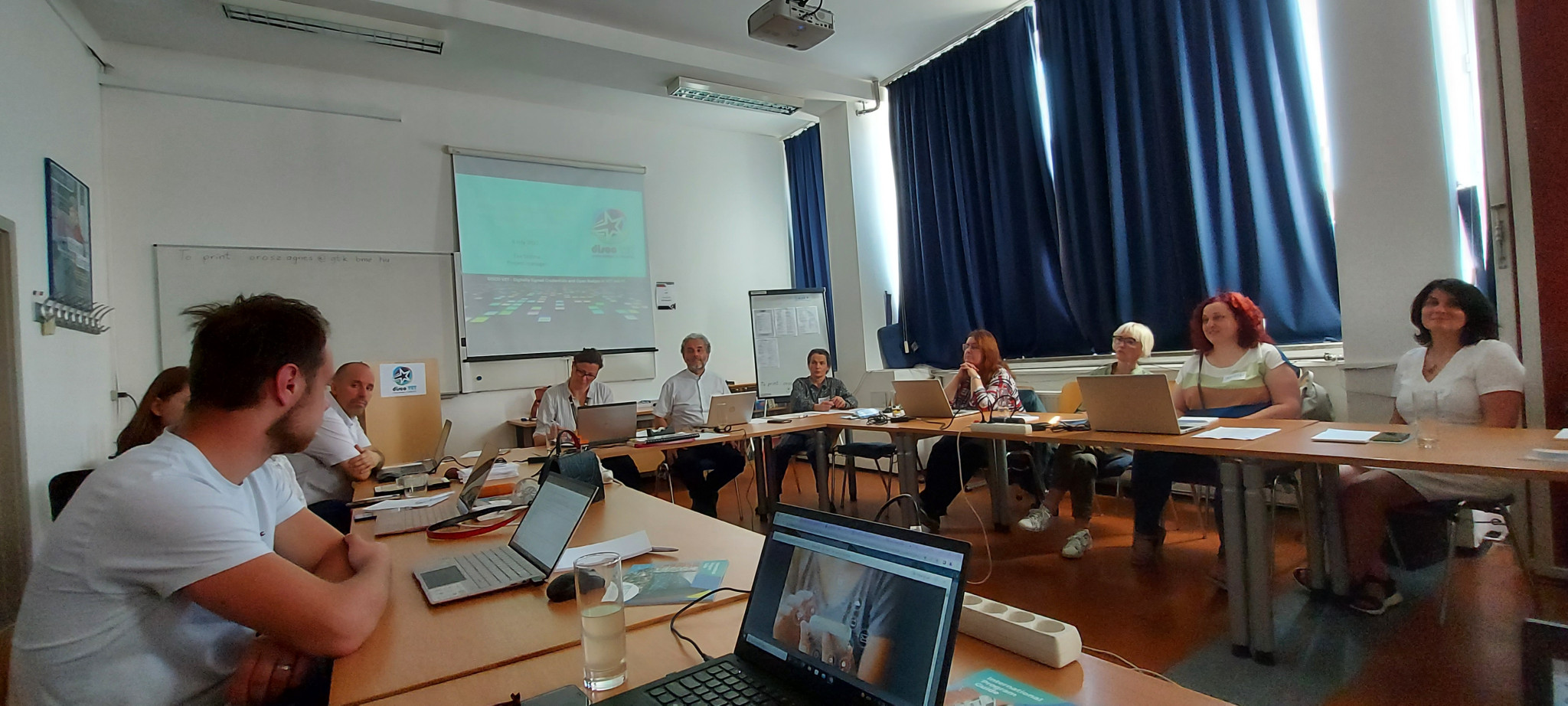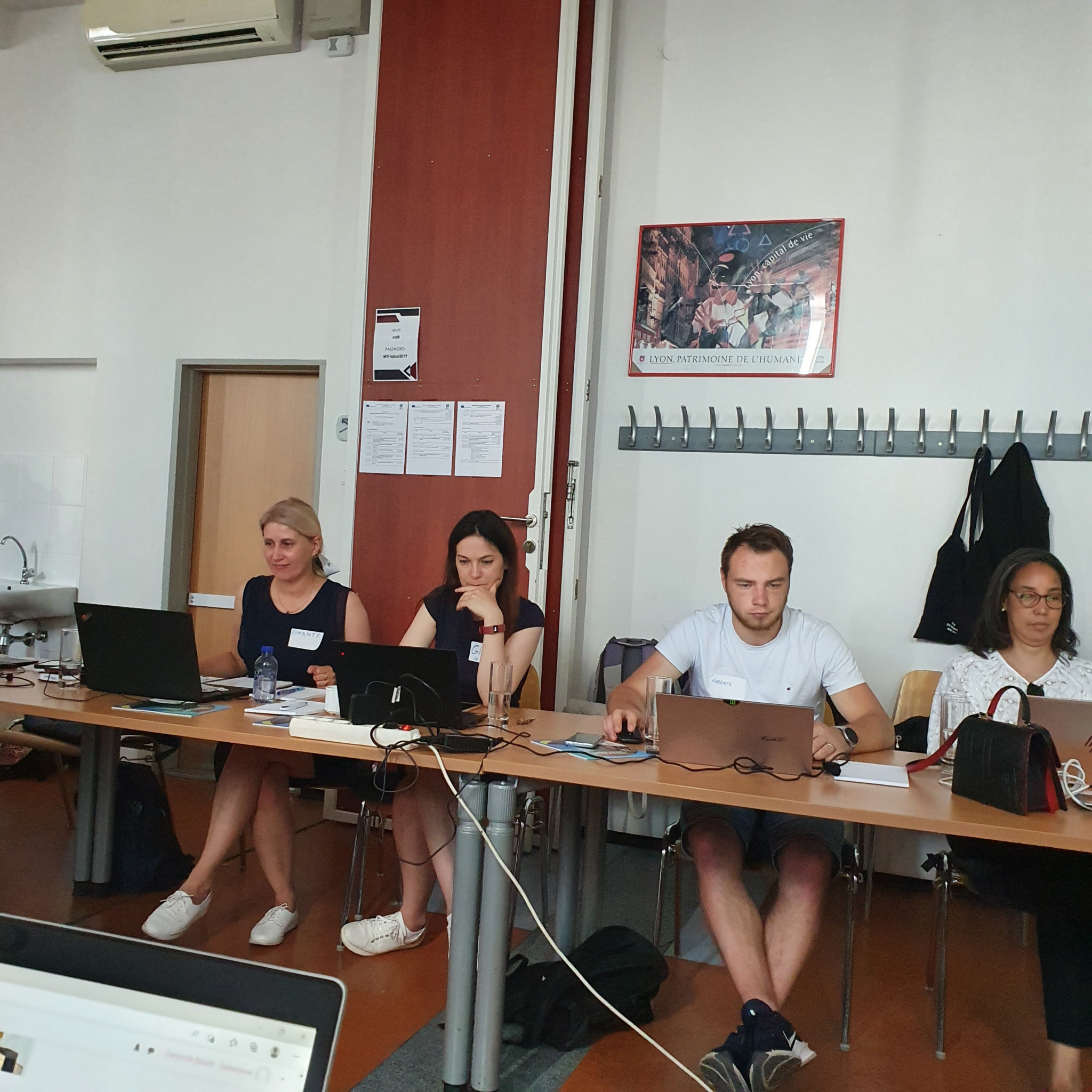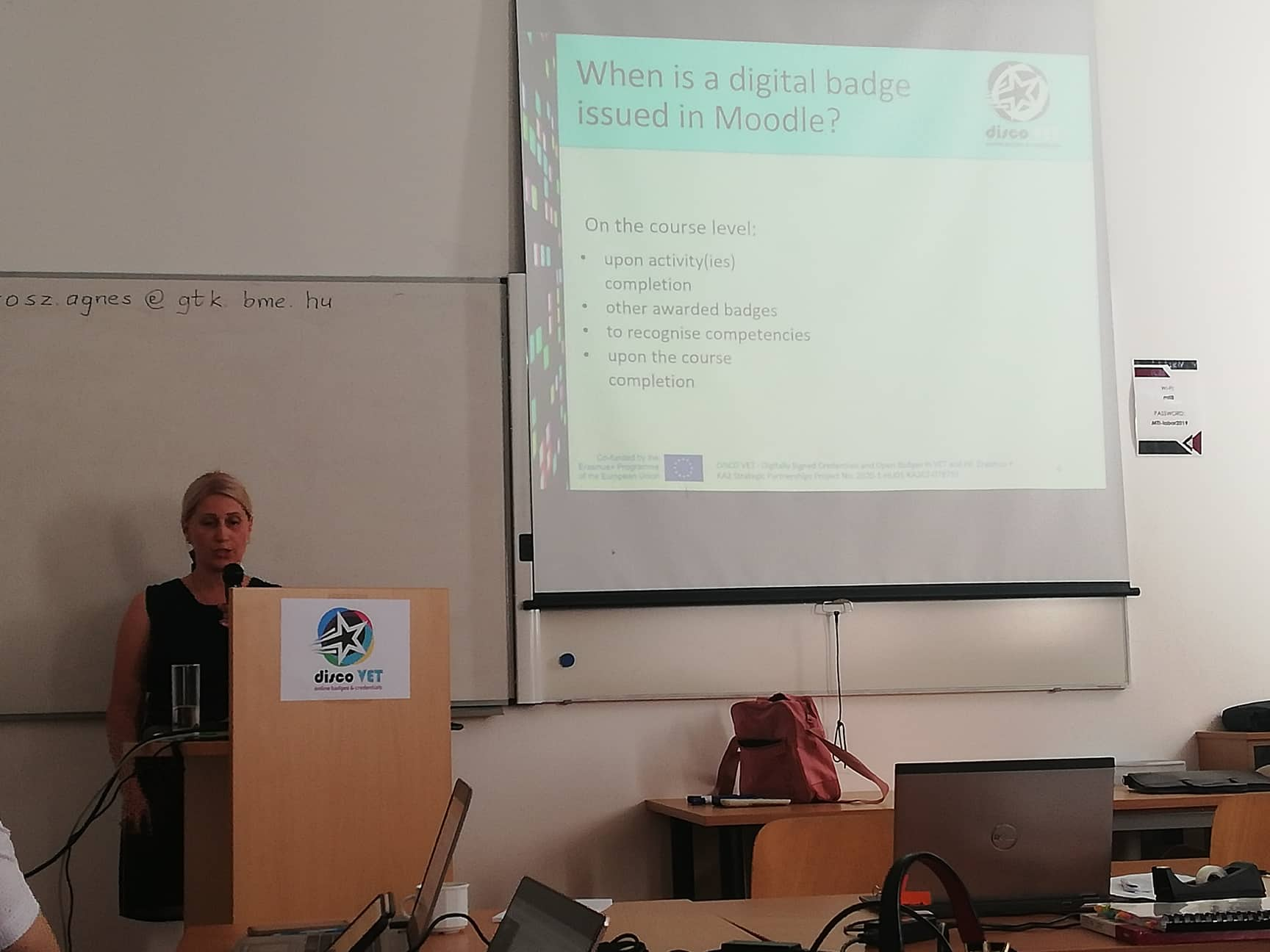An intensive DiscoVET training course on digital badges and credentials
The DiscoVET project held an intensive training course at the Budapest University of Technology and Economics for representatives of higher education and vocational schools interested in the development, issuance, and use of digital badges for studies and/or professional development from 6th to 8th July. The project experts who organised and delivered the training presented the informal online learning course “Open badges and digitally signed credentials”, which provided training participants with the knowledge and tools to familiarise with this area, the theoretical context as well as easy to follow step-by-step guides to create, issue and manage your own digital badges and certificates. Three platforms for creating, issuing and/or storing digital badges and credentials were introduced during the training: Moodle, DISCO VET Player and Europass.
Rimantė Čepauskienė (project representative at partner institution VMU) presented the possibilities of creating and issuing digital badges and recommendations for describing the metadata of digital badges in the Moodle virtual learning environment. Given that Moodle is one of the most commonly used virtual learning environments in educational institutions, the participants of the course created and learnt how to issue digital badges to each other, thus trying out both the role of the issuer and the recipient.
The project experts pointed out that with the rapid development of digital badges and microcredentials and the growing demand for them, the challenges of issuing, assessing and recognising them are not only faced by educational institutions, but also by employers and the rest of the labour market.
Course participants agreed that the informal online learning course “Open Badges and Digitally Signed Credentials”, developed within the project, could be useful and relevant for educational institutions at different levels of education, the labour market, and other organisations providing professional development opportunities.
Just to remind, the project aims to build on the capabilities of the Open Badge 2.0 open standard to create an open-source platform (repository) where education providers and learners can collect (issue, retrieve, store, view) their digital badges in a way that is more meaningful and searchable. You can read more about the project on the project website.
